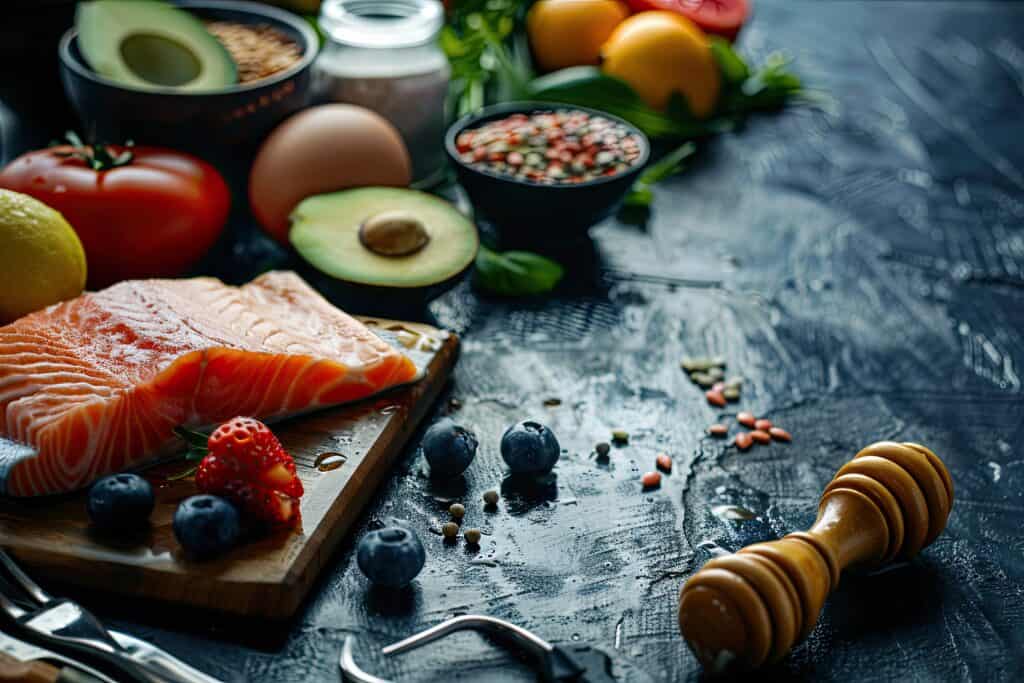When it comes to post-workout nutrition, the role of protein is critical for muscle repair and growth. While whey protein is often touted as the go-to choice for many athletes, there are numerous alternatives that can effectively promote muscle protein synthesis (MPS). This article explores the best food sources to consume after working out, based on scientific evidence, if you’re not using whey protein. It also covers the ideal timing for protein intake and the recommended amount of protein per meal to maximize recovery and muscle growth.
Why Protein is Essential Post-Workout
After a workout, your muscles are in a state of repair, particularly after resistance or strength training. Exercise induces muscle breakdown, and the body needs amino acids from dietary protein to rebuild and repair muscle fibers. Muscle protein synthesis (MPS) is the process where the body repairs muscle tissue, leading to muscle growth and recovery.
Research indicates that consuming protein post-exercise can enhance MPS, reduce muscle damage, and improve recovery time, which is why the timing and source of protein are so important . While whey protein is fast-digesting and rich in essential amino acids, other high-quality protein options can also offer similar benefits without the use of supplements.
Best Whole Food Protein Sources for Post-Workout Nutrition
Eggs
Eggs are one of the most complete sources of protein, containing all nine essential amino acids that are crucial for MPS. A large egg provides about 6-7 grams of protein and is highly bioavailable, meaning the body can easily absorb and utilize it.
- Why Eggs? Eggs are rich in leucine, an essential amino acid that plays a key role in stimulating muscle protein synthesis. Research shows that consuming eggs after resistance exercise can increase MPS effectively, making them a top choice for post-workout recovery.
- How to Incorporate: Have 3-4 scrambled eggs or boiled eggs after your workout to hit your post-exercise protein needs.
Greek Yogurt (Non-Whey)
Greek yogurt is another excellent source of protein that contains casein and whey proteins naturally, though non-whey options are available. It’s thicker and more concentrated than regular yogurt, often containing up to 20 grams of protein per serving. Greek yogurt also provides calcium, which is essential for bone health.
- Why Greek Yogurt? Studies have shown that the combination of fast- and slow-digesting proteins in yogurt makes it ideal for muscle repair. Greek yogurt also contains probiotics, which can improve gut health and nutrient absorption, supporting overall recovery
- How to Incorporate: Enjoy Greek yogurt with some fresh berries or a drizzle of honey for a balanced post-workout meal.
Chicken Breast
Chicken breast is a lean source of protein that is widely considered a staple in fitness nutrition. A 3-ounce serving of cooked chicken breast contains approximately 25-30 grams of high-quality protein, making it a perfect post-workout meal.
- Why Chicken? Chicken breast is low in fat and rich in essential amino acids. Research has demonstrated that the protein in chicken is highly digestible and effective in promoting MPS, particularly when consumed after a resistance workout.
- How to Incorporate: Grill or bake chicken breast and pair it with complex carbohydrates like brown rice or quinoa for a balanced recovery meal.
Lentils
For those following a plant-based diet, lentils are a powerful protein source. They provide around 18 grams of protein per cup and are also rich in iron, fiber, and complex carbohydrates.
- Why Lentils? While plant-based proteins typically lack one or more essential amino acids, lentils are high in leucine and arginine, both important for muscle recovery. Combining lentils with a grain like quinoa or brown rice can provide a complete protein profile, enhancing MPS . Studies show that plant proteins can be just as effective as animal proteins when consumed in sufficient amounts.
- How to Incorporate: Prepare a lentil stew or curry with vegetables for a post-workout meal that’s both high in protein and rich in nutrients.
Tuna
Tuna is a protein powerhouse, offering about 20-25 grams of protein per 3-ounce serving. It’s also an excellent source of omega-3 fatty acids, which have anti-inflammatory properties and can aid in muscle recovery.
- Why Tuna? The high protein content, combined with omega-3s, makes tuna a great option for post-exercise recovery. Omega-3s have been shown to enhance MPS by reducing inflammation and improving the body’s response to exercise-induced muscle damage.
- How to Incorporate: Opt for canned tuna in water and mix it with avocado and whole-grain bread for a post-workout sandwich.
How Soon Should You Eat Protein After a Workout?
One of the most common questions is how soon after a workout should you eat protein. The “anabolic window” refers to the time period post-exercise during which consuming protein can maximize muscle recovery. While it was once believed that this window was only 30 minutes, recent studies suggest that the window may be broader, up to 2 hours post-workout.
However, consuming protein within 30-60 minutes after a workout is still considered optimal for promoting muscle protein synthesis. A study published in the Journal of the International Society of Sports Nutrition concluded that the timing of protein intake, while important, may not be as critical as previously thought, as long as sufficient protein is consumed throughout the day.

How Much Protein Per Meal?
The amount of protein needed to stimulate MPS is another key consideration. Research suggests that consuming 20-40 grams of protein per meal is sufficient to maximize MPS in most individuals. A study in the American Journal of Clinical Nutrition found that 20 grams of high-quality protein is enough to stimulate MPS in younger individuals, while older adults may benefit from consuming closer to 40 grams due to decreased muscle sensitivity to protein intake.
Consuming protein in evenly spaced meals throughout the day, rather than all at once, is also more effective for promoting muscle repair and growth. Aim to consume around 0.4 grams of protein per kilogram of body weight per meal, spread out over 3-4 meals per day.
Conclusion
While whey protein is a popular option for post-workout recovery, there are numerous whole food protein sources that can effectively promote muscle protein synthesis and recovery. Eggs, Greek yogurt, chicken breast, lentils, and tuna are all excellent choices to include in your post-workout nutrition. Consuming protein within 30-60 minutes post-exercise and ensuring you meet your daily protein requirements are key to optimizing muscle growth and repair. With the right approach, you can achieve the same benefits as those who rely on whey protein supplements.
References
- Phillips, S. M., & Van Loon, L. J. (2011). Dietary protein for athletes: From requirements to metabolic advantage. Applied Physiology, Nutrition, and Metabolism.
- Schoenfeld, B. J., et al. (2013). The effect of protein timing on muscle strength and hypertrophy: a meta-analysis. Journal of the International Society of Sports Nutrition.
- Wolfe, R. R. (2017). Protein quality as determined by the digestible indispensable amino acid score: evaluation of factors underlying the calculation. The American Journal of Clinical Nutrition.
Stay Strong Together
For those looking to enhance their fitness journey, the award-winning Jefit app is an invaluable tool. Jefit offers personalized workout plans, extensive exercise libraries, and progress tracking features to help you reach your health goals. Whether you’re focusing on your carb intake, aiming to build muscle, or seeking to improve overall fitness, Jefit provides the resources and support needed for success. Join millions of users worldwide who have transformed their lives with Jefit, and take control of your health and fitness today.
- Whey vs. Casein: What’s the Best Protein for Building Muscle - April 18, 2025
- Four Popular Jefit Chest Exercises Backed by Science - April 16, 2025
- 4 Must-Have Exercises Backed by Science for a Full-Body Workout - April 14, 2025
